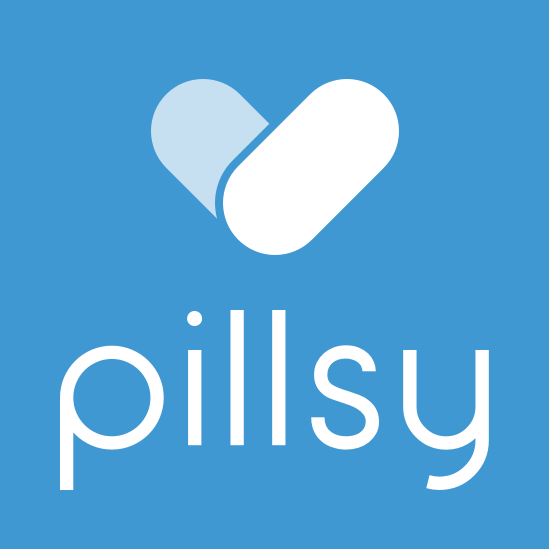Smart Pill Bottles
The concept of having a pill bottle keep track of medication adherence isn’t anything new. You have the MEMS Cap which has been used in multiple clinical trials for over two decades at this point, which could let researchers know when the bottle was opened (and a dose was assumed taken). Funnily enough, there has been a home-brew market for a few years now with instructions for makers to create their own pill bottles which can easily be found online. However, the smart pill bottle market has steadily evolved and there are a number of new players on the field. Nonetheless, recently there has been a slew of studies lending some troubling views as to whether these systems accomplish their intended purpose of increasing medication adherence, which I have written about before. I stand by future research and designs may lead us to a better understanding in the next few years.
Note: One feature about many of these companies is that the caps they supply may not attach directly to a patients bottle depending on what pharmacy they use. Some caps are being sold for CVS/Walgreens/etc bottles or more likely they are sending their own bottle along for the patient to use instead.
AdhereTech
Perhaps one of the most well known smart pill bottle companies, AdhereTech platform focuses on a standalone cellular enabled bottle that transmit data in real-time when it is opened. This data can then be utilized by clinicians for patient management. The system also includes SMS, phone call, and live outreach to patients depending on dose history. The bottle lights up when a dose is due, and alerts patients to take their drug with chimes as well coming from the bottle. AdhereTech markets its devices as a standalone platform relying on no syncing with an app or set-up from a patient side, and lasts for 6+ months on a single charge. Now, this is not a device intended for individual consumer purchase (B2C) but for use within health systems or research purposes (B2B). One example would be the work between Avella Specialty Pharmacy and AdhereTech to monitor adherence rates in expensive medications - which honestly seems the golden area for any digital health company focused on medication adherence these days - with a focus on oncology therapy (Link to example poster research). Most of their recent clinical work has focused on the specialty market and chronic conditions including Hep C, Cystic Fibrosis, and anticoagulation therapies.
Research
Vitality GlowCap
NantHealth has a whole line of products focused on health data integration, and includes the use of a smart pill bottle. Now, the GlowCap has an interesting history, spinning out of the MIT Media Lab by David Rose. Rose co-founded Ambient Devices, which was focused on making IOT devices, and started Vitality, which was focused on the use of an IOT smart pill bottle to track medication adherence. From there, the initial premise of B2C transitioned to B2B, and the company was subsequently sold to NantHealth. The GlowCap system works with a smart cap that attaches to a medication bottle and sends alerts to patients when to take their next dose (e.g., audible alerts and the cap lid will change colors). This data can then be shared with clinicians or other healthcare members for the patient.
Research
Pillsy
A rather new start-up that launched in 2017, they have created two PillsyCap products focused on medication adherence. This includes a smart pill cap for prescription drugs, and a smart pill cap/bottle for supplements (e.g., vitamins). The cap is blue-toothed enabled and syncs with a mobile app. The cap will send an audible alert when it is time to take a dose, and the app will display alerts as well for the patient to see. This data can be shared with others, such as a family member. Pillsy current market includes B2B and B2C ($39.95 on Amazon).
Research
There have been no published clinical trials using Pillsy to date (Sept 12, 2018).
ClinicalTrials.gov does list one study at this time using Pillsy.
TimerCap iCap
TimerCap is known in the industry for producing ‘low-tech’ (at least in regards to the rest of the stuff on my website) solutions for medication adherence, such as caps that fit on a pill bottle with a time until the next dose is due. Nonetheless, keeping up with the times has led them to produce the iCap. This smart pill cap attaches to the top of an amber vial and through blue-tooth connection syncs to a smartphone app to keep track of medication adherence. They also produce a wireless connected pill organizer (7-Days) called the iSort, that also syncs to the app. These devices all produce alerts via the app and device to let the patient know when their dose is due. Interestingly, it seems that TimerCap was partnered with MediSafe for a time, but it is not known if that relationship is still in place.
Research
No known research using TimerCap iCap system.
Medikyu
Not to much on this company, but appears to be a B2C model where a smart pill cap attaches to a pill bottle (amber or white supplied by the company) that syncs with an app. The bottle sends an alarm when it is time to take the medication, and blue-toothed data is then sent to the app on a mobile device (iOS & Android) whereupon uploaded to a cloud server for family members to monitor as well. Perhaps most interesting (when compared to other devices in this area) is that their business model is focused on a subscription service, so the consumer enrolls into the platform and does not have to purchase the smart pill bottles (though unsure if cost is increased per bottle or just a set rate per user).
Research
No known trials using Medikyu.
DoseSmart
Bluetooth enabled smart pill cap that syncs with a mobile app (iOS & Android). Alerts are sent via the mobile device with the app, and the cap can send an audible alert and flash when next dose is due. Data is then uploaded to a portal for clinicians to then review. No data on how long the cap lasts per charge, and business model seems to be B2B at this time, though each unit appears to cost $39.99.
Research
No known trials using DoseSmart.
Intent Solutions TAD
Intent Solutions ‘Take as Directed’ (TAD) system is focused primarily on the opioid crisis plaguing the United States. The platform uses a proprietary medication dispenser device that syncs via bluetooth and a mobile app which tracks when a dose is taken (or you can watch this video to see how it works). It is unknown whether this device locks out patients from taking to much at a time, or rather just collects data to track patient behavior for a clinician to intervene when they deem appropriate.
Research
No known trials using TAD.
Robrady
Robrady manufactures multiple devices, but two are worth mentioning here. First is their Pill (yes, thats the name) smart opioid dispenser, which you guessed it, is a device to dispense controlled substances. Now, the reusable dispenser is filled and dispensed directly from the pharmacy, and has a timer in the device that dispenses each dose in accordance with the prescription. It has an E-ink display that shows times till next dose and medication information. It can currently hold up to 15 tablets. Data is uploaded to a mobile app and can then be monitored remotely. Second, their Dayamed MedPod is a portable multi-dose medication dispenser that can take strip packaged medications and serve as an electronic dispenser. It has built in cellular service so that it can connect in real-time to a database.
Research
No known trials using Robrady products.
Nomi
SMRxT is a company dedicated towards improving medication adherence through data analytics, and that includes a smart pill bottle, Nomi. Their bottle has multiple sensors that collect the medication weight to track adherence (e.g., Table 1 weighs 10mg, 30 tablets = 300mg, removal of 1 tablet = 290mg remaining), time, movement, and temperature. This data can then be shared with clinicians and family members. It appears the bottle is to be filled in the pharmacy and then delivered to the patient, and thus a B2B model. It does not pair with an app and uses cellular data to broadcast information to an online database.
Research
No known trials using Nomi.








